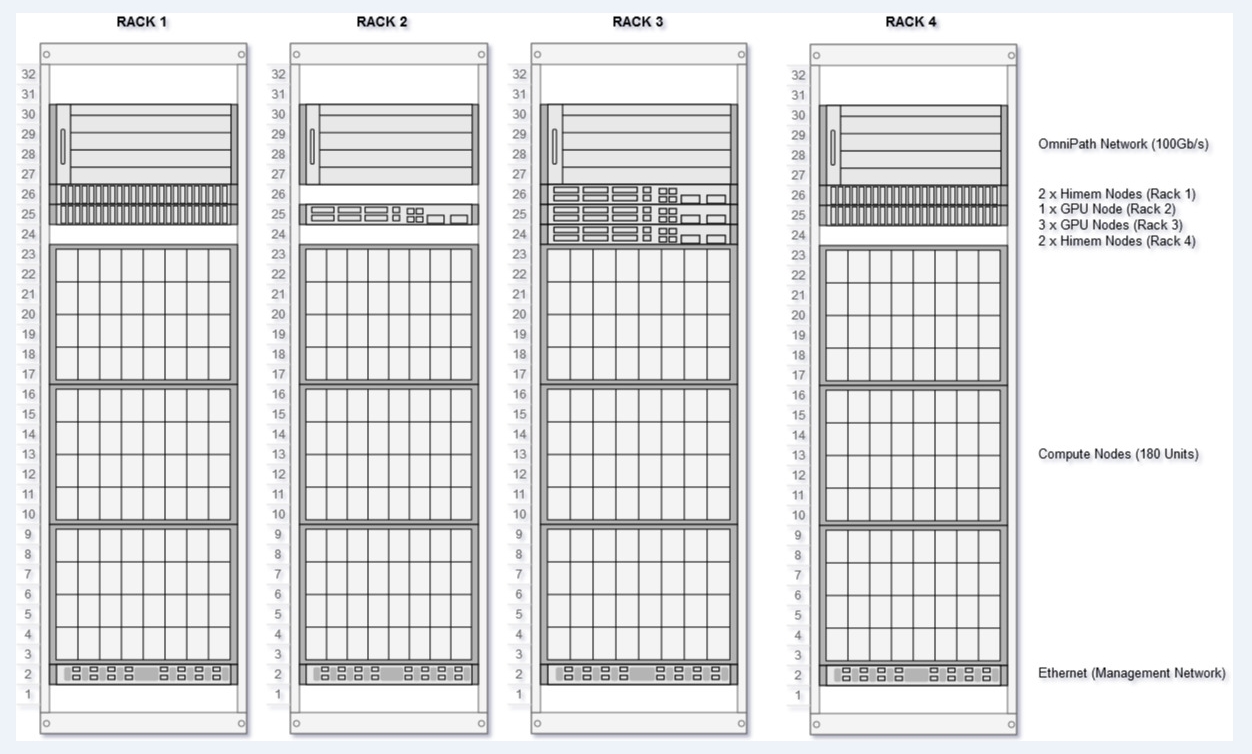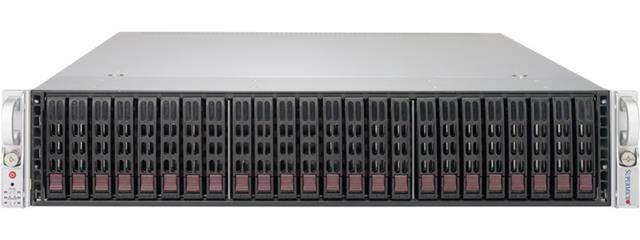Difference between revisions of "FurtherTopics/Additional Information On Viper"
From HPC
(→Viper Specifications) |
m (→Update) |
||
| Line 47: | Line 47: | ||
|- | |- | ||
|} | |} | ||
| − | |||
| − | |||
| − | |||
Revision as of 13:25, 10 November 2022
Physical Hardware
Viper is based on the Linux operating system and is composed of approximately 5,500 processing cores with the following specialised areas:
- 180 compute nodes, each with 2x 14-core Intel Broadwell E5-2680v4 processors (2.4 –3.3 GHz), 128 GB DDR4 RAM
- 4 High memory nodes, each with 4x 10-core Intel Haswell E5-4620v3 processors (2.0 GHz), 1TB DDR4 RAM
- 4 GPU nodes, each identical to compute nodes with the addition of an Nvidia Ampere A40 GPU per node
- 2 Visualisations nodes with 2x Nvidia GTX 980TI
- Intel Omni-Path interconnect (100 Gb/s node-switch and switch-switch)
- 500 TB parallel file system (BeeGFS)
The compute nodes (compute and highmem ) are stateless, with the GPU and visualisation nodes being stateful.
- Note: the compute nodes that have no persistent operating system storage between boots (e.g. originates from hard drives being the persistent storage mechanism). Stateless nodes do not necessarily imply diskless, as ours have 128Gb SSD temporary space too.
Infrastructure
- 4 racks with dedicated cooling and hot-aisle containment (see diagram below)
- Additional rack for storage and management components
- Dedicated, high-efficiency chiller on AS3 roof for cooling
- UPS and generator power failover




